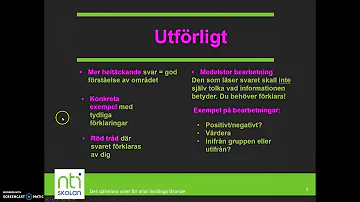What does Torah mean literally?
Innehållsförteckning
- What does Torah mean literally?
- Why is it called Haftarah?
- What is Ishut?
- Are the Talmud and Torah the same?
- Is Torahs a word?
- What is the meaning of ketuvim?
- How do you chant haftarah?
- What is Maftir and haftarah?
- What are the 13 principles of Judaism?
- Who wrote Mishneh Torah?
- What is the d'var Torah?
- How do I subscribe to Dvar Torah?
- What is the meaning of the word of Torah?
- Is the Torah a living document?

What does Torah mean literally?
Torah (תורה) in Hebrew can mean teaching, direction, guidance and law. The most prominent meaning for Jews is that the Torah constitutes the first five books of the Hebrew Bible (also called the Pentateuch, 'five books' in Greek), traditionally thought to have been composed by Moses.
Why is it called Haftarah?
The haftarah or (in Ashkenazic pronunciation) haftorah (alt. haphtara, Hebrew: הפטרה) "parting," "taking leave", (plural form: haftarot or haftoros) is a series of selections from the books of Nevi'im ("Prophets") of the Hebrew Bible (Tanakh) that is publicly read in synagogue as part of Jewish religious practice.
What is Ishut?
1. Ishut: laws of marriage, including kiddushin and the ketubah. 2. Geirushin: laws of divorce. 3.
Are the Talmud and Torah the same?
While the Torah is more about wars and kings, the Talmud is domestic. I want the best people - the writers, the poets, the scriptwriters for TV - the people who are making Jewish culture [to read it]. "The secular elite that gave it up for many years are reclaiming it."
Is Torahs a word?
When used in that sense, Torah means the same as Pentateuch or the Five Books of Moses. ... In rabbinic literature the word Torah denotes both the five books (תורה שבכתב "Torah that is written") and the Oral Torah (תורה שבעל פה, "Torah that is spoken").
What is the meaning of ketuvim?
Definition of Ketuvim : the third part of the Jewish Scriptures which contains the poetic books and the remaining canonical books of the Jewish Scriptures not included in the Torah or the Nevi'im. — called also Writings.
How do you chant haftarah?
1:159:09Haftarah Tutorial All Tropes - YouTubeYouTube
What is Maftir and haftarah?
Maftir (Hebrew: מפטיר, "concluder") is the last person called up to the Torah on Shabbat and holiday mornings: this person also reads the haftarah portion from a related section of the Nevi'im (prophetic books). ... On Jewish holidays and certain special Shabbatot there are readings from two or more Torah scrolls.
What are the 13 principles of Judaism?
While discussing the claim that all Israel has a share in the world to come, Maimonides lists 13 principles that he considers binding on every Jew: the existence of God, the absolute unity of God, the incorporeality of God, the eternity of God, that God alone is to be worshipped, that God communicates to prophets, that ...
Who wrote Mishneh Torah?
Maimonides Mishneh Torah/Authors Mishne Torah, extensive commentary on the Talmud, composed in the 12th century by the renowned Jewish philosopher and scholar Moses Maimonides. Each of its 14 volumes deals with a group of laws covering one subject.
What is the d'var Torah?
- The institution of the d’var Torah — literally a “word of Torah,” a lesson or sermon interpreting a text, which can be delivered by anyone, lay or clergy — reflects a fundamental Jewish belief in the infinite interpretive possibilities of Torah.
How do I subscribe to Dvar Torah?
- Enter your email address to subscribe to Torah.org's Dvar Torah email list. Dvar Torah is your opportunity to read fascinating insights on the weekly portion of the Torah. Many of the great commentators of the past and present are quoted.
What is the meaning of the word of Torah?
- — literally a “word of Torah,” a lesson or sermon interpreting a text, which can be delivered by anyone, lay or clergy — reflects a fundamental Jewish belief in the infinite interpretive possibilities of Torah. This concept is best articulated in
Is the Torah a living document?
- Because we construe the Torah as a living document, its words can only be understood in the context of the generations. Just because a d’var Torah primarily is designed to teach does not mean it may not entertain. A touch of humor is in order, as long as it is germane to the lesson.















